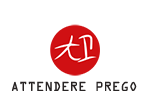ZhanZhuang-empower the mind
YIQUAN: A Simple Explanation by Gaspare Ribaudo.
What is Yiquan? Questions posed in this simple manner often cause distress because you want to explain an entire world, but the question is much simpler and direct, so the answer should be equally so.
To summarize, Yiquan is a martial art that encompasses what its founder (Wang Xiang Zhai, 1885 – 1963) believed to be the best principles used in Chinese internal martial arts styles, after years of research and study. The founder of Yiquan did not invent anything; rather, he recovered and valued techniques and practices that, for various reasons, were undergoing transformation or, worse, being lost.
We must not forget that during those years, the cultural revolution in the People’s Republic of China did not benefit martial arts (to put it mildly) or other disciplines.
The study and practice of Yiquan involve a wide range of exercises, all of which pass through careful and meticulous study of various levels of Qi Gong (both Yăngshēng and Neijia). It can be confidently stated that Yiquan does not exist without Qi Gong. The study of Qi Gong leads to a total transformation of the individual and creates a new energetic structure that also manifests at the physical level. This type of force is generally called internal force or energy.
In Yiquan, every expression occurs through the management of this type of force, which, depending on the type of Qi Gong practiced, can manifest externally with movements that can be very different from each other. These movements can be slow, fluid, and soft or very small, fast, and powerful.
Internal force, like energetic movement, can only manifest through “external” movements due to mechanical and anatomical reasons of the human being. It is undeniable that when I move an arm, I do so by using the body and its muscles. However, in this case, the input for the movement is not dictated by the conscious brain but by the flow of energy (or Qi) inside the body. One could say that the movement occurs because something has manifested inside the body and then flowed into my arm, causing it to move. In this case, though, the moving arm is the only visible (or terminal) part of a whole energetic movement that has occurred internally.
The definition I have provided here is very concise and “Western.” In reality, this subject has deep roots in Chinese culture and traditional medicine. Personally, I believe that internal force is easier to experience than to explain. In any case, those who wish to delve into the topic can draw from the vast literature now available to everyone. But let’s return to the initial question.
In Yiquan, there are no techniques (moves) or codified sequences (forms) like in external styles (for example, karate or judo). However, this does not mean that one can move randomly or make things up. The movements are determined by the type and level of Qi Gong being practiced, and it should be noted that an experienced eye can still understand whether the movement reflects the correct principles or not.
Contrary to a fairly widespread belief among non-practitioners, Yiquan is a very difficult art to learn. It requires a great deal of commitment, dedication, and many, many hours of practice—years, in fact! Learning can be complex, and sometimes one can be hindered or even blocked by false illusions, the idea of having become “skilled.” Practice must strictly adhere to tradition and not skip any steps. Beware of those who dilute an ancient lineage to make you believe it is “simple.” These teachers may have many students, but they lie to themselves and others, ultimately doing a disservice to martial arts and the community at large.
Study sessions should first aim to address the integration of body and mind, and only then can they consider internal alchemy and martial aspects.
One cannot talk about martial growth if the aspects of physical, mental, and energetic well-being are not addressed first. Martial arts cannot exist without psychophysical well-being. With Yiquan, growth is never-ending, there are no limits, except those imposed by your mind.
By Gaspare Ribaudo (B.Y.T.C. instructor from Turin). A special thanks to the instructor and friend Eduardo De Gregorio, who collaborated in the drafting of this brief thought.

